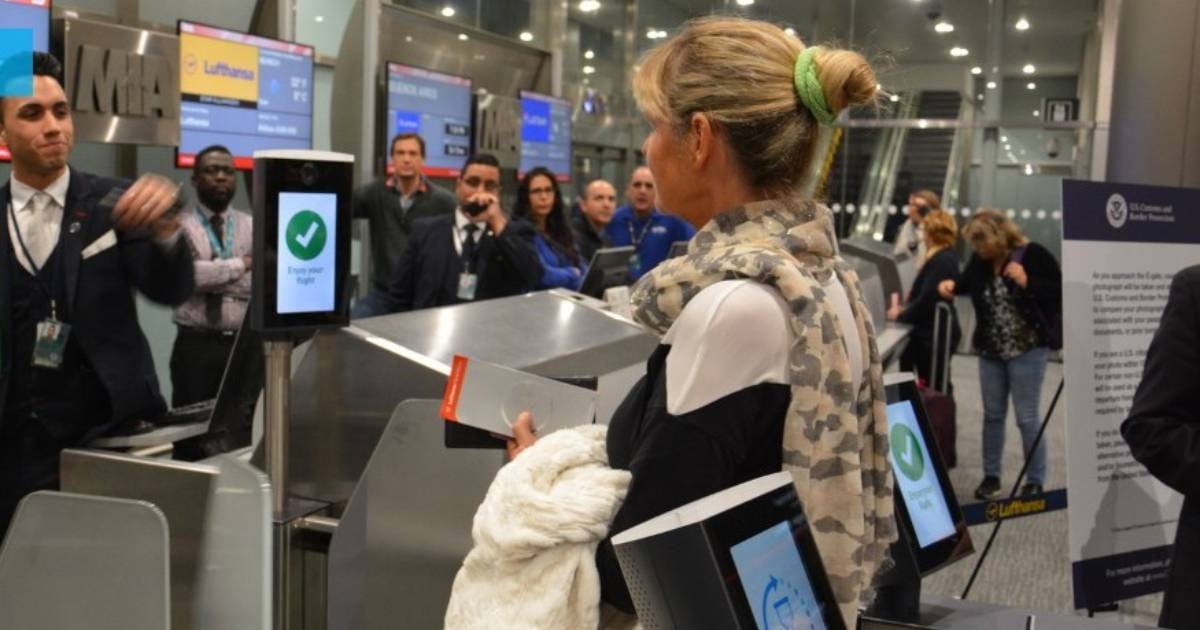On the inaugural day of President Donald Trump's travel ban, the Miami International Airport (MIA) appeared to operate as usual. Flights arriving from Cuba, Haiti, and other Caribbean regions landed without incident. Yet, for numerous travelers, the silence in the waiting areas didn't equate to tranquility; instead, it was filled with a restrained tension and unanswered questions: Could this be their last entry into the United States?
Magda Moreno, a 58-year-old U.S. citizen, arrived at MIA from Cuba on Monday. Despite her uneventful journey, she couldn't hide her concerns about the future. "After these four years, the United States will return to what it was, at least a country that has welcomed many immigrants. [...] Just because of one man's whim, everything has been turned upside down," she told the Miami Herald.
Moreno wasn't alone in voicing her worries. Other Cubans and Cuban-Americans interviewed by the local newspaper also reported smooth entries but highlighted the confusion and frustration spurred by the measure. Juan Carlos Torres, a Cuban resident in the U.S., returned without issues, adding to a day free of visible rejections. However, uncertainty is mounting, fueled by accounts like Narayana Lamy's, a Haitian with a visa, who entered without trouble but fears future difficulties.
Passengers like Mo François, an American of Haitian descent, directed their criticism toward local governments. "Haitian authorities should oppose this. We have no one to defend us," he lamented to the Miami Herald. While the State Department assures that current visas remain valid, the proclamation's ambiguous wording and border agents' discretion leave many in suspense.
Cuban and Venezuelan Travelers Directly Affected
The proclamation signed by Trump directly impacts Cubans and Venezuelans, partially halting the issuance of new visas. According to calculations by the American Immigration Council cited by The Miami Herald, more than 125,000 non-immigrant visas and up to 34,000 immigrant visas could be blocked.
For those dreaming of reuniting with family, studying in the U.S., or simply visiting loved ones, this measure is an unexpected closed door. Although exceptions exist for permanent residents, refugees, diplomats, and athletes, experts warn that travelers from affected countries may face increased scrutiny upon entering the country.
A Historical Echo of Migration Policies
The measure signifies a continuation of the restrictive policies Trump promoted during his first presidency, arguing that the affected countries lack reliable mechanisms to verify citizens' identities, control expired stays, and that their governments don't cooperate with the United States. For the Cuban community, which has endured decades of forced separation and uncertain migration processes, the proclamation resurrects old fears.
Despite the apparent calm at MIA, what prevails is a tense anticipation. Thousands of Cuban families, both on and off the island, find themselves further from reuniting, closer to the fear of being ensnared by a policy that, as many denounce, fails to distinguish between rights, dreams, and nationalities.
Frequently Asked Questions about the Impact of Trump's Travel Ban
How does the travel ban affect Cuban and Venezuelan citizens?
The travel ban directly impacts Cuban and Venezuelan nationals by suspending the issuance of new visas, potentially blocking more than 125,000 non-immigrant visas and up to 34,000 immigrant visas.
Are current visas still valid under the new travel ban?
Yes, the State Department has stated that existing visas remain valid, although travelers might face increased scrutiny upon entering the United States.
What exceptions exist for the travel ban?
Exceptions include permanent residents, refugees, diplomats, and athletes, who are not subject to the travel ban restrictions.
